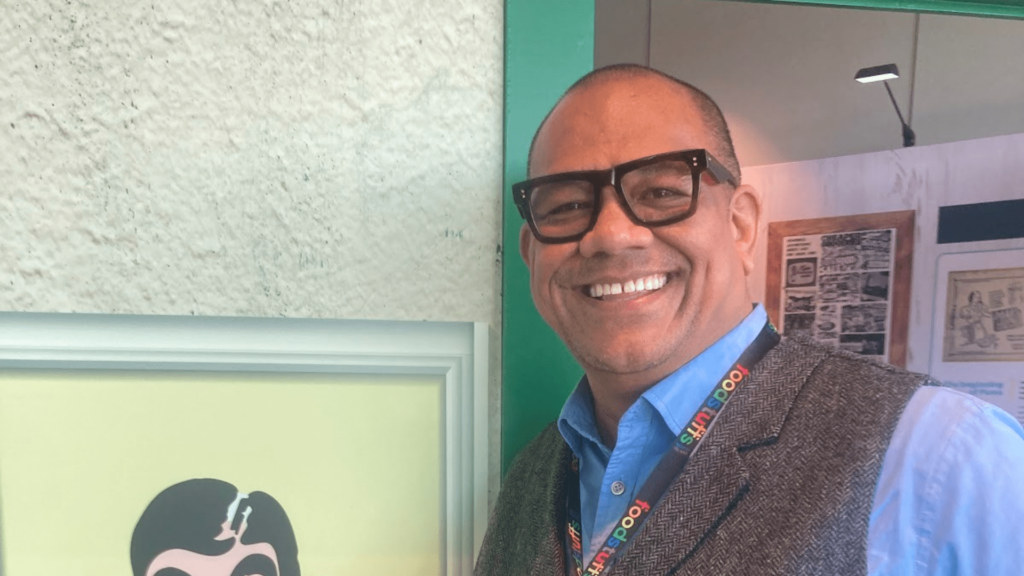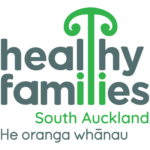
Mila Masiasomua is a proud Samoan, raised in Ōtara and works at Foodstuffs North Island in Occupational Wellbeing to help staff operate at the optimum level at work. He talks to Tulou about his background in Physiotherapy, and how he uses his cultural knowledge to inform his mahi in occupational wellbeing.
Can you tell us about your role at Foodstuffs?
I’ve been here at Foodstuffs North Island for about two years initially starting in a Health and Safety role for our Landing Drive Distribution Centre (DC) in Māngere. It became evident early on at the DC, staff worked hard, putting in long hours, with many routinely doing overtime to provide for their families. On top of their family and out-of-work commitments, the Health and Safety space was about managing the fatigue of our people and ensuring their safety at work.
After about a year in that role, Foodstuffs established this role specialising in occupational wellbeing, to ensure staff can operate at the optimum level at work from a wellbeing perspective. Not just from a physical wellbeing perspective but from a mental wellbeing perspective as well. Outside of work, because those spheres overlap, it’s about education and helping staff to be better in every aspect of life.
The focus of the role extends across all Foodstuffs North Island DC’s which really excites me as it aligns with my physiotherapy degree.
Wow, physiotherapy! How did you get into that?
I grew up in Otara and attended Hillary College. At the end of secondary school, I went overseas and after some time, I returned home, married with two kids. I needed to do something and so I applied to do physiotherapy because I loved sports. After completing my physio degree, I ended up working at a practice in Papatoetoe.
After several years the owner of the clinic was looking to sell the business. I was fortunate to take over one clinic before expanding to four – three in South Auckland and one in East Auckland.
While working as a physio, what did you notice about the health of Pacific and Māori people?
It was during this time that I realised that Māori and Pasifika had acute injuries, but they had a lot of other illnesses such as diabetes, obesity – a whole range of chronic diseases. As a physio I couldn’t deal with these issues directly, and if I could help, it was through education and giving them exercises. Unfortunately, we typically lacked funding for it. For instance, layered on top of these health challenges was the cultural context of Pacific and Māori people (Mila is Samoan). When you think of Samoans and other Pacific people, how do you change their habits deeply ingrained in their culture, such as attending church and partaking in the weekly Sunday toona’i (Sunday lunch). You can’t just say to people, stop buying cultural foods and buy more vegetables, it’s just not practical – there are social determinants that we encounter.
Knowing that you could only help people to a certain extent, how did it make you feel?
It made me feel that my degree in Physio was limited. However, it did make me think more about how I change what I do to help others. I felt frustrated with Physiotherapy because of those limitations and as much as one thinks I’ll just help people; you need some money to make it sustainable.
So, what did you do?
In a state of uncertainty about how I could contribute to positive change, I was approached by the General Manager of Health and Safety at SkyCity who told me about a role working with employees, many Pacific, and Māori, and dealing with workplace issues. I applied for the role as it was dealing with people from a holistic perspective but still being able to use my physiotherapy skills in a workplace setting. It was a step in the right direction for my career, as I could work in the physio clinics on the weekends while exploring this new world of large business.
What gaps did you notice in this role?
I recall learning that Sky City had a loose arrangement with a central Auckland gym for discounted gym memberships. This benefit is a good thing to do for staff, but my question to them was, what does this type of gym stand for? This particular gym was a challenging fit for the majority of workers in terms of its locations, a potentially unfamiliar environment that may create some awkwardness. Even though it may be a perception, for Pacific, Māori and migrants that work at SkyCity, it was highly unlikely they were going to take up this offer of discounted membership.
In terms of policy, they needed to be more bespoke for Sky City staff, rather than a one-size-fits-all. A significant part of what was on offer for staff did require a mindset shift from those in positions of power to enable changes that will have the most significant impact on people.
As a Samoan working in a large business, does your lived experience help you connect and understand many of the people you serve.
I remember early on when I walked the floor with my boss in the Foodstuffs DC, receiving nods of acknowledgement from different people working there. My boss was surprised and asked if I knew the staff. I responded that as a Samoan and Pacific person, we acknowledge each other in these workspaces to establish connections and relationships. I also have lived experience of what people working there are probably going through as my Dad worked in similar roles. It’s crucial for people in positions of influence or decision makers to understand and be aware of what people are experiencing. If we want to introduce a new policy, we need to understand the potential implications for those it will likely impact when implementing changes.
It sounds like you have a challenging but fulfilling role.
I love doing what I do, I really enjoy it! How do I live in this world and contribute to the wellbeing of others? Growing up in a Samoan family, there was a big focus on our values – alofa (love), fa’aaloalo (respect) – so how do I apply these in the world? I believe that it’s through helping to enhance a person’s wellbeing.
Why is it a great place to work?
Foodstuffs is trying its best to provide affordable food for New Zealanders at our supermarkets. That ideology of caring for New Zealanders also flows on to the people that work for the company, just look at this new office and DC here in Māngere. My role is fantastic, my boss gives me flexibility to do my role, and checks in to ask what I need to thrive, what can be cleared. That support really makes a difference.
Any last words?
Wellbeing is a journey. It’s crucial to who we are and it’s not until you lose your wellbeing, physically, mentally, and spiritually, that you realise its significance in your day-to-day life.
